Category: computing – Page 369

New, super-smart hardware could provide drastic cuts in power consumption
Greener data processing requires systems that work smarter, faster, and are more energy efficient. Researchers from the Norwegian University of Science and Technology (NTNU) have developed a tiny piece of super-smart hardware that enables all of the above.
Anyone who knows anything about running computer programs knows that they take time, and everyone wants the program they are running to work as quickly as possible.
A new, tiny piece of hardware designed by computer scientists can be integrated into processors, which are the computer’s brains, making it easier for developers to write programs that run faster and more efficiently.
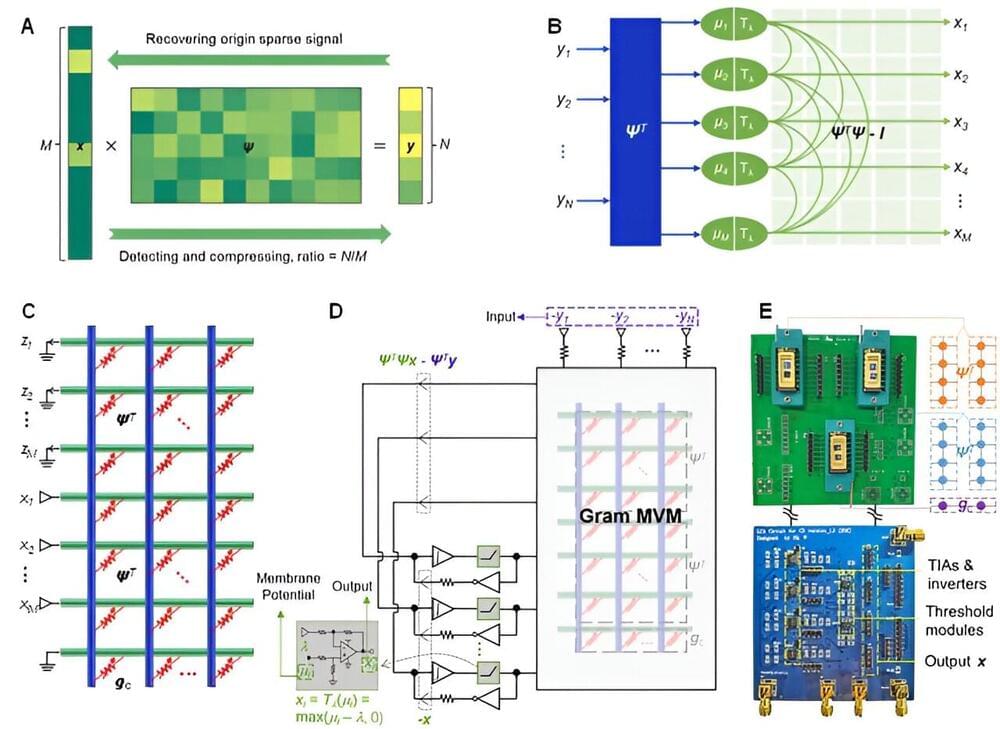
Research team develops analog hardware solution for real-time compressed sensing recovery in one step
A research team led by Prof. Sun Zhong at Peking University has reported an analog hardware solution for real-time compressed sensing recovery. It has been published as an article titled, “In-memory analog solution of compressed sensing recovery in one step” in Science Advances.
In this work, a design based on a resistive memory (also known as memristor) array for performing instantaneous matrix-matrix-vector multiplication (MMVM) is introduced. Based on this module, an analog matrix computing circuit that solves compressed sensing (CS) recovery in one step (within a few microseconds) is disclosed.
CS has been the cornerstone of modern signal and image processing, across many important fields such as medical imaging, wireless communications, object tracking, and single-pixel cameras. In CS, sparse signals can be highly undersampled in the front-end sensor, which breaks through the Nyquist rate and thus significantly improving sampling efficiency.

Utility-Scale Quantum Program Advances Toward Prototyping
DARPA’s Underexplored Systems for Utility-Scale Quantum Computing (US2QC) program seeks to determine whether an underexplored approach to quantum computing can achieve utility-scale operation — meaning its computational value exceeds its cost — faster than conventional predictions.
In the initial phase, each company presented a design concept describing their plans to create a utility-scale quantum computer. In the follow-on phase, selected performers aim to take their concepts to the next level. Now, US2QC’s key goal centers on developing and defending a system design for a fault-tolerant prototype, a smaller-scale quantum computer demonstrating that a utility-scale quantum computer can be constructed as designed and operated as intended.
This prototype system design will identify all required components and sub-systems and establish their minimum performance requirements. A DARPA-led government test and evaluation team consisting of technical experts will evaluate design viability.
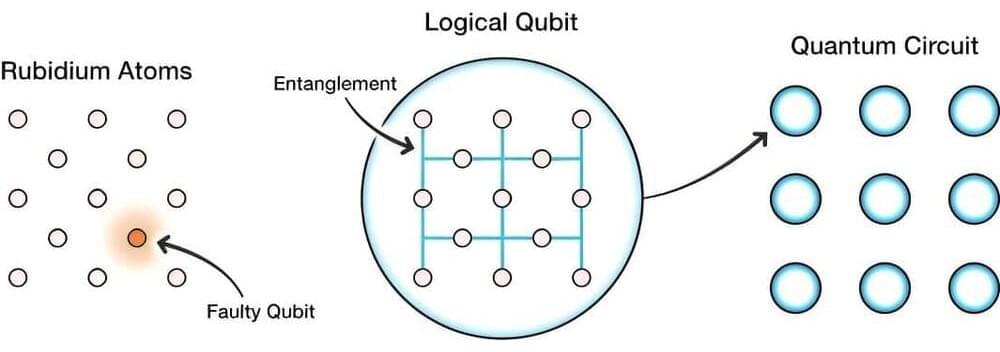
Researchers create first programmable, logical quantum processor
Harvard researchers have realized a key milestone in the quest for stable, scalable quantum computing, an ultra-high-speed technology that will enable game-changing advances in a variety of fields, including medicine, science, and finance.
The team, led by Mikhail Lukin, the Joshua and Beth Friedman University Professor in physics and co-director of the Harvard Quantum Initiative, has created the first programmable, logical quantum processor, capable of encoding up to 48 logical qubits, and executing hundreds of logical gate operations, a vast improvement over prior efforts.
Published in Nature, the work was performed in collaboration with Markus Greiner, the George Vasmer Leverett Professor of Physics; colleagues from MIT; and QuEra Computing, a Boston company founded on technology from Harvard labs.
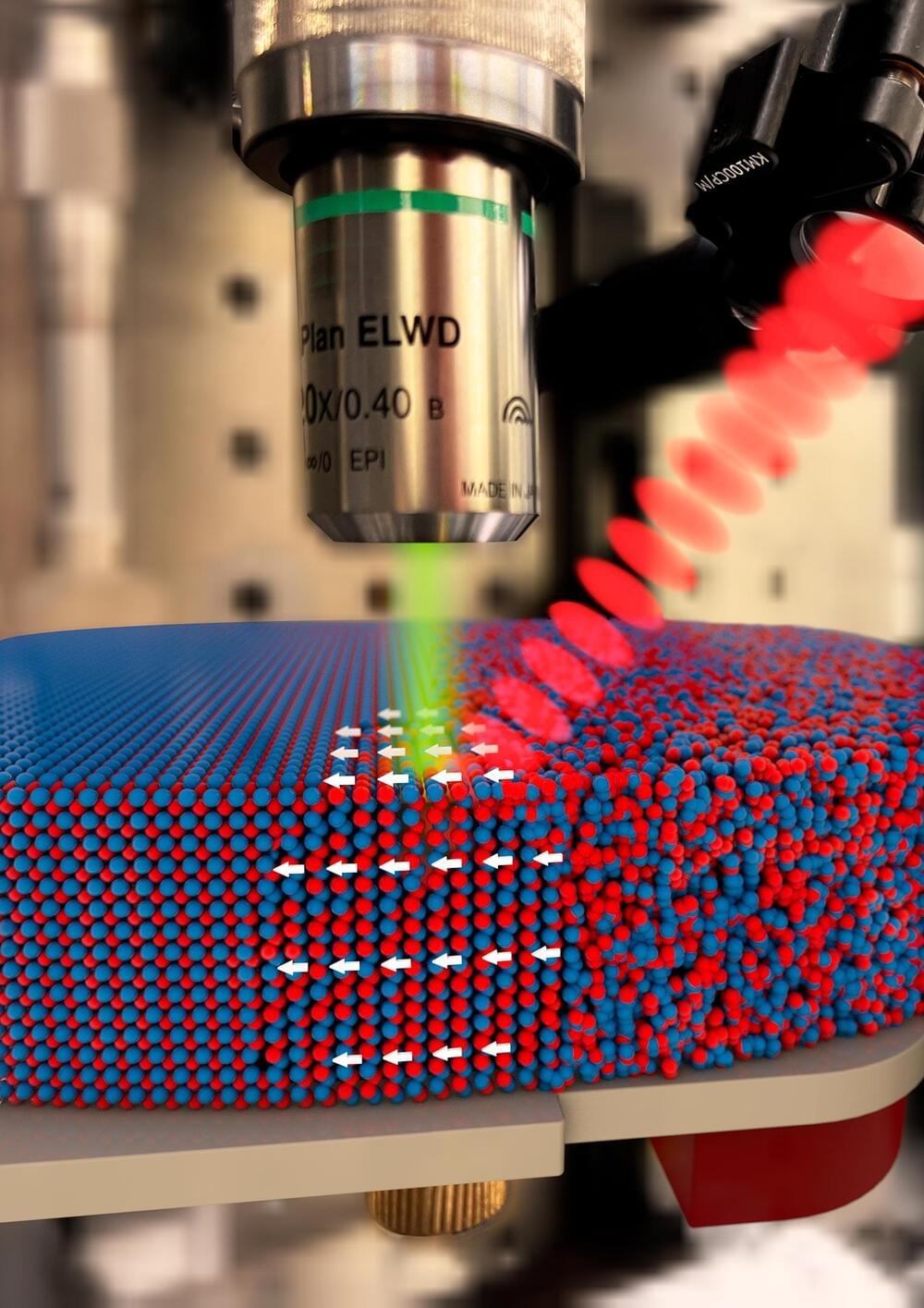
Magnetization by Laser Pulse: A Futuristic Twist in Material Science
A research team has revealed that ultrashort laser pulses can magnetize iron alloys, a discovery with significant potential for applications in magnetic sensor technology, data storage, and spintronics.
To magnetize an iron nail, one simply has to stroke its surface several times with a bar magnet. Yet, there is a much more unusual method: A team led by the Helmholtz-Zentrum Dresden-Rossendorf (HZDR) discovered some time ago that a certain iron alloy can be magnetized with ultrashort laser pulses. The researchers have now teamed up with the Laserinstitut Hochschule Mittweida (LHM) to investigate this process further. They discovered that the phenomenon also occurs with a different class of materials – which significantly broadens potential application prospects. The working group presents its findings in the scientific journal Advanced Functional Materials.
Breakthrough Discovery in Magnetization.


Spintronics Breakthrough — Scientists Confirm a Previously Undetected Physics Phenomenon
In a new breakthrough, researchers have used a novel technique to confirm a previously undetected physics phenomenon that could be used to improve data storage in the next generation of computer devices.
Spintronic memories, utilized in advanced computers and satellites, leverage the magnetic states produced by the intrinsic angular momentum of electrons for data storage and retrieval. Depending on its physical motion, an electron’s spin produces a magnetic current. Known as the “spin Hall effect,” this has key applications for magnetic materials across many different fields, ranging from low-power electronics to fundamental quantum mechanics.
More recently, scientists have found that electrons are also capable of generating electricity through a second kind of movement: orbital angular momentum, similar to how Earth revolves around the sun. This is known as the “orbital Hall effect,” said Roland Kawakami, co-author of the study and a professor in physics at The Ohio State University.
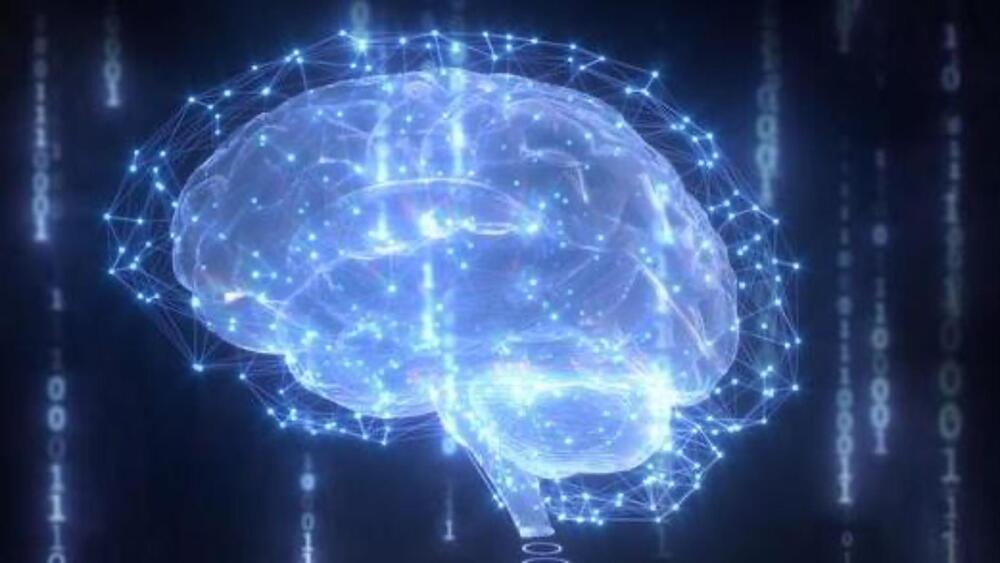
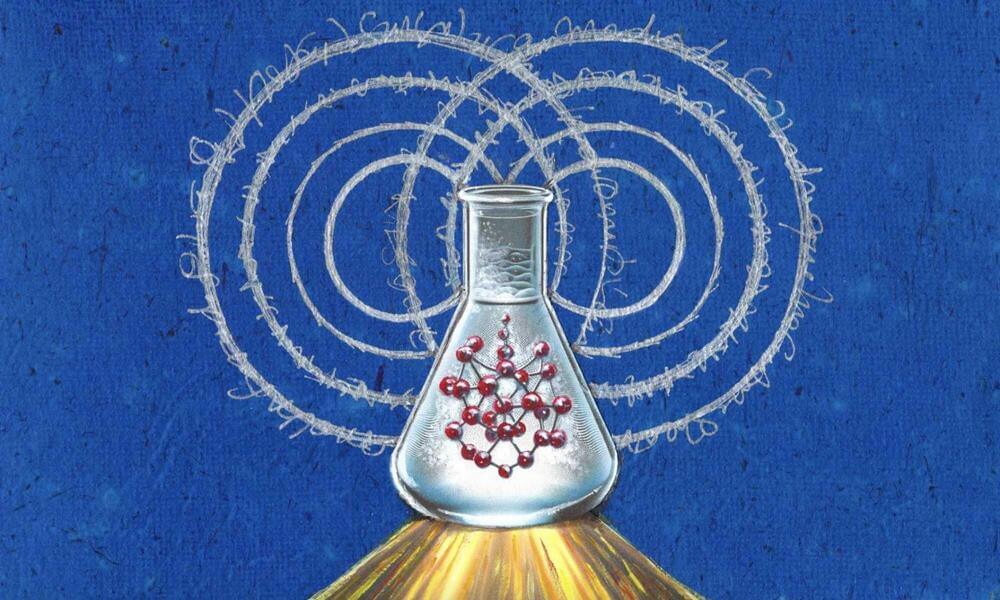
New strategy reveals ‘full chemical complexity’ of quantum decoherence
In quantum mechanics, particles can exist in multiple states at the same time, defying the logic of everyday experiences. This property, known as quantum superposition, is the basis for emerging quantum technologies that promise to transform computing, communication, and sensing. But quantum superpositions face a significant challenge: quantum decoherence. During this process, the delicate superposition of quantum states breaks down when interacting with its surrounding environment.
To unlock the power of chemistry to build complex molecular architectures for practical quantum applications, scientists need to understand and control quantum decoherence so that they can design molecules with specific quantum coherence properties. Doing so requires knowing how to rationally modify a molecule’s chemical structure to modulate or mitigate quantum decoherence.
To that end, scientists need to know the “spectral density,” the quantity that summarizes how fast the environment moves and how strongly it interacts with the quantum system.